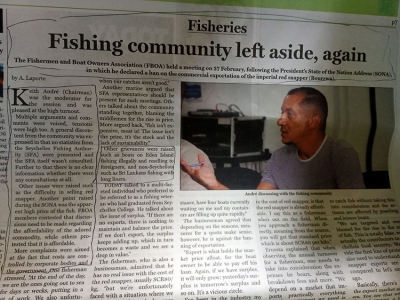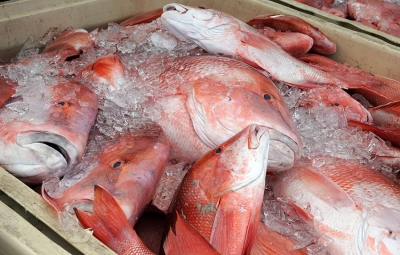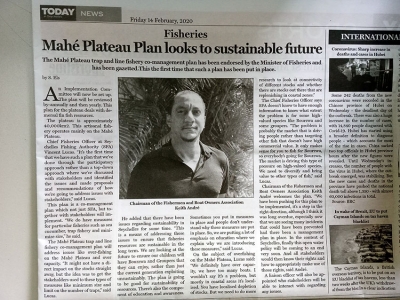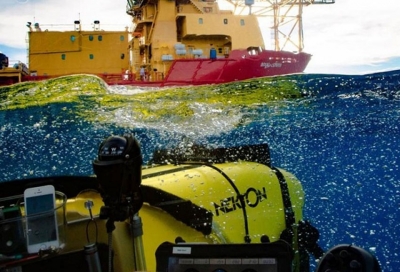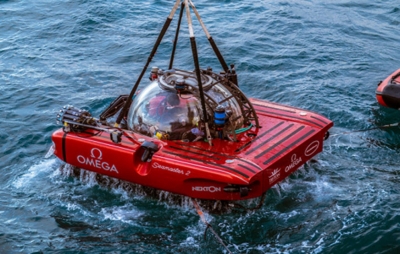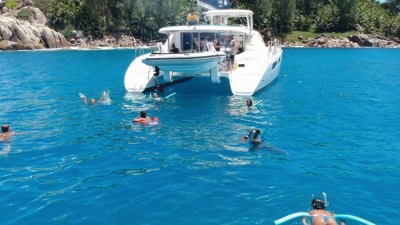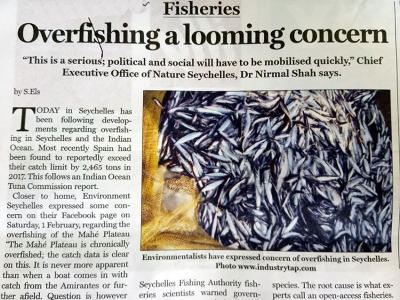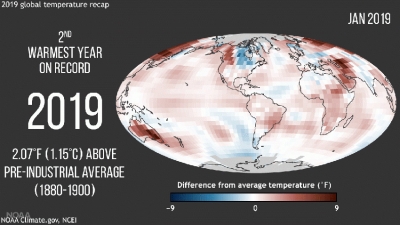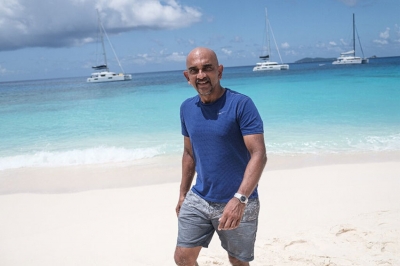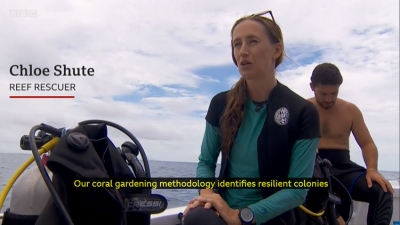
Super User
Fishing community holds meeting on Bourzwa ban
According to the Today in Seychelles of 28 February 2020, the Fishermen and Boat Owners Association (FBOA) held a meeting on 27 February following the President's State of the Nation Address (SONA 2020) in which he declared a ban on the commercial exportation of the imperial red snapper (bourzwa).
Proposed Ban on Red Snapper Exports in Seychelles
Today in Seychelles Saturday 22 February: Representatives of Seychelles' fishing community have been left stumped by government's surprise announcement that red snappers (bourzwa) will be banned from commercial exportation.
Mahe Plateau Trap and Fishery Co-Management Plan endorsed
The Mahe Plateau Trap and Fishery Co-Management Plan has been endorsed by the Minister of Fisheries and has been gazette. This is the first time the plan such a plan has been put in place, Today in Seychelles reports in article dated February 14th 2020. The article says that an implementation committee is to be set up.
Nekton expedition to conduct first seamounts research in waters of Seychelles, Maldives
(Seychelles News Agency 12/2/2020): A joint Nekton expedition in Seychelles’ and Maldives’ waters will for the first time provide information about seamounts — underwater mountains — in the Indian Ocean region.The exploration set to take place next month follows the successful mission in 2019 and will involve 50 international scientists, technicians, media and crew including from the two countries.
New scientific mission will dive deep into Seychelles' ocean
(Seychelles News Agency February 6, 2020) : A deep-sea mission by scientists to establish a baseline of marine life and the state of the ocean in Seychelles, the Maldives and the high seas of the central Indian Ocean will start March 16, State House said in a press release on Wednesday.
Seychelles' yacht charter policy updated
(Seychelles Nation 14/2/2020): The cabinet on Wednesday approved the revised Yacht Charter Policy which provides guidelines and provisions for the yachting tourism industry in Seychelles. The policy defines three types of yacht charter services available in Seychelles, namely, bare boat charters, skippered charters and crewed charters, and sets out the regulations pertaining to business structures within the industry.
Today in Seychelles: Overfishing a looming concern
Nature Seychelles' Chief Executive Dr. Nirmal Shah has said that overfishing in Seychelles is a "serious problem" and that "political and social will have to be mobilized quickly" to address it.
The last decade was earth's hottest in recorded history
Earth temperatures soared in the decade that just ended according to local and global reports, with 2019 being the second hottest year after 2016.
AFP: In Seychelles, nature is prized above mass tourism
(AFP 16 January 2020): In a shady patch along a pristine white beach on Mahe Island, a radio spits out reggae and snapper sizzles on the barbecue, as Seychelloise Nareen tops up her rum and coke on time off from her job aboard a luxury yacht.
BBC News: Is 'super coral' the key to saving the world's reefs?
Watch BBC News coverage of our Reef Rescuers project. Started nearly 10 years ago, the coral reef restoration project, Nature Seychelles' Reef Rescuers project uses the coral gardening method for coral reef restoration. First, corals are grown in underwater nurseries until they reach a size that is suitable for transplantation. Then, the nursery-grown corals are transplanted onto degraded reefs and long-term monitoring of transplantation success is carried out. You can learn more about the Reef Rescuers project on our website: http://natureseychelles.org/what-we-do/coral-reef-restoration
